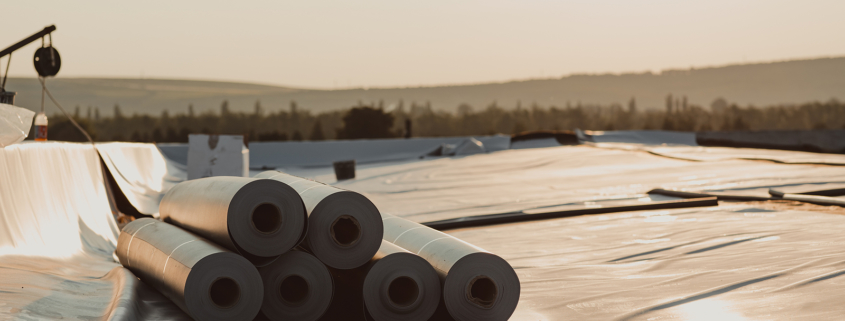Revealing The Amazing Benefits Of Rubber Roofing
If your home or business is ready for a new roof, you may be confused by all the options available.
When choosing a roof type, there are many considerations to make, including cost, longevity and durability, among others.
One type that’s proven to be enduringly popular over the years is rubber roofing, with many people going for this option over alternatives such as asphalt, metal and slate.
Here, we’ll be going over the main reasons why rubber is a great material for roofs, to help you decide whether it’s suitable for your property.
What Is Rubber Roofing?
Rubber roofing, or ethylene propylene diene monomer roofing, to give it its proper name, is a type of roofing material made from synthetic rubber.
It is manufactured using a combination of ethylene and propylene derived from natural gas and oil.
These components are polymerised with diene, a compound that contains two double bonds, to create a durable and flexible rubber membrane. This membrane is then typically reinforced with polyester or fibreglass to enhance its strength and stability.
Its attractive attributes (which we’ll get into below) make it particularly well suited for various applications and you’re likely to find rubber roofing being used in a variety of places, mostly in commercial and industrial settings, as well as in residential flat or low-slope roofs.
Why Rubber Roofs Are So Popular
Here are the main advantages that rubber roofs offer:
Strong & Durable
It doesn’t matter what type of roof is being made, it needs to be able to withstand all that the elements can throw at it. Thankfully, rubber roofing is exceptionally sturdy and resilient, enduring harsh weather conditions and heavy foot traffic without deterioration.
Its robust construction guarantees long-lasting protection for your property, reducing the need for frequent repairs or replacements, which can be costly and leave your home vulnerable.
Resistant To Extreme Weather
A roof will need to withstand UV rays, hail, and high winds to offer protection to your property. This is especially the case at times of unpredictable weather, which we’re now seeing more of here in the UK.
Rubber roofing helps to safeguard your property year-round and its resistance to damage from extreme elements minimises the risk of leaks and structural damage, ensuring peace of mind.
Adapts To Temperature Fluctuations
Rubber roofing’s flexibility and thermal stability mean it’s able to expand and contract with temperature changes, preventing cracks and leaks.
This adaptability ensures rubber roofing is able to perform in diverse climates, mitigating the risk of damage caused by thermal stress on traditional roofing materials.
Easy Installation
Rubber roofing isn’t just advantageous for the customer but it’s also easy to install for the fitter too.
Lightweight and flexible, rubber roofing is straightforward to install, which not only speeds up the process but should also lead to reduced labour costs.
Its ease of handling and installation makes it a cost-effective choice for both new construction projects and roof replacements, saving time and money without compromising quality.
Versatility & Low Maintenance
Suitable for roofs with complex shapes and angles, rubber roofing offers versatility in design and installation.
Additionally, its minimal maintenance requirements mean that upkeep costs are kept low, making it an economical and practical roofing solution for numerous reasons.
Disadvantages Of Rubber
Despite many benefits we’ve covered, like all materials, rubber roofing does have some potential drawbacks to consider.
For instance, while it is durable, it can be susceptible to punctures from sharp objects and may require occasional repairs if it’s forced to endure plenty of footfall or impact.
Additionally, rubber roofing can be more expensive upfront compared to some traditional roofing materials like asphalt shingles. However, its longevity and low maintenance requirements will usually offset these initial costs over time, but it’s something to consider at least.
Moreover, proper installation by experienced professionals can help minimise these issues, ensuring that rubber roofing continues to provide reliable protection for your property.
If you’re looking for an experienced company to fit your rubber roofing in Wolverhampton then get in touch as we’d be happy to help. We have extensive experience and, depending on the size of the job, can usually have your roof sorted within a day.



